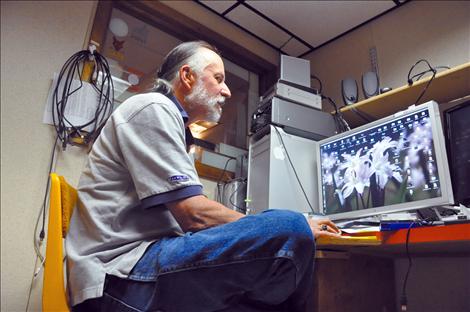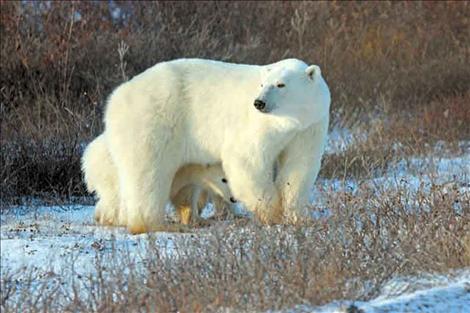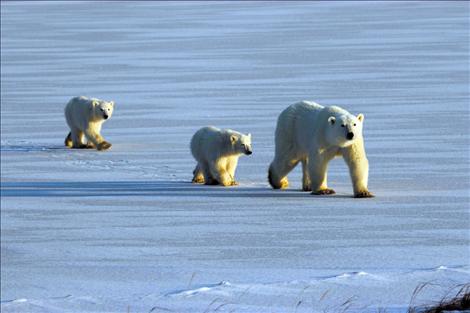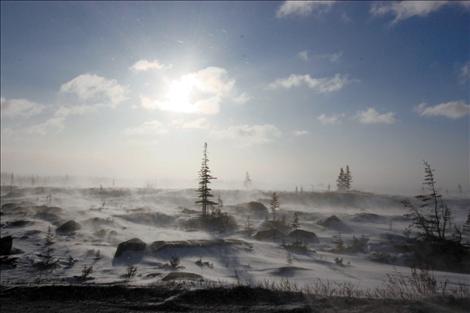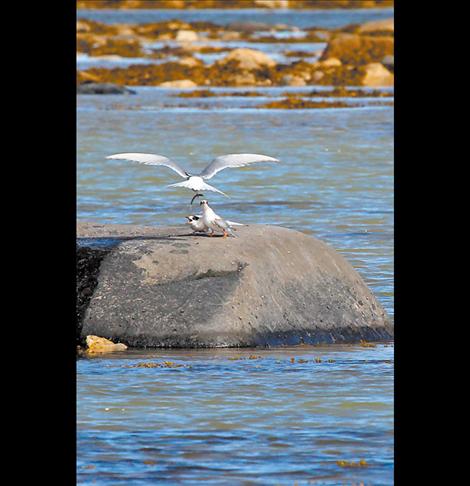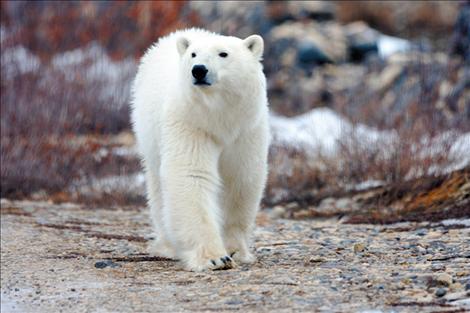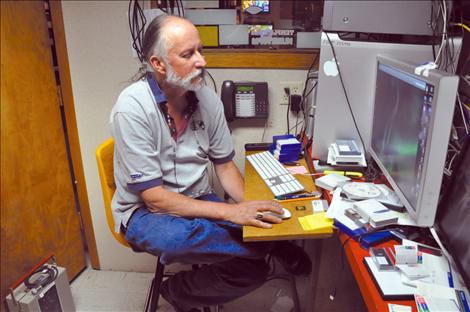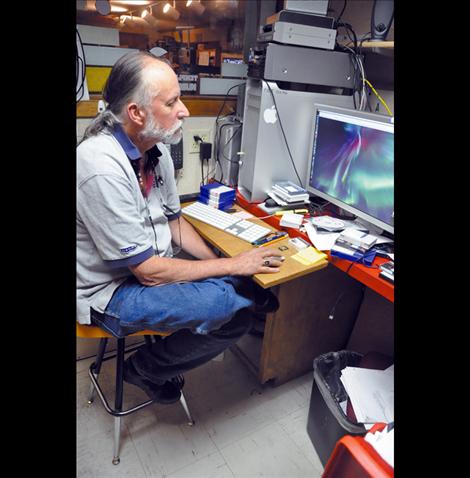Talented filmmaker accomplished, yet humble
Hey savvy news reader! Thanks for choosing local.
You are now reading
1 of 3 free articles.
The bumper stickers on the back of Frank Tyro’s truck can tell you a lot about what he feels passionately about, but the capital letters and vibrant colors cause more of a fuss than the quiet professor does in person.
“It’s just his way of observing the world,” his wife, Lori Lambert, said of his soft-spoken nature.
The award-winning filmmaker who is a professor at Salish Kootenai college and director of the college’s PBS channel KSKC, has earned international acclaim for his filmmaking talents, but he’s very humble when asked about them. He becomes more animated when he talks about the progress KSKC has made since first began broadcasting 25 years ago or his frequent trips to Churchill, Manitoba.
“I’m really lucky because everything I do, I do because I enjoy it,” Tyro said.
The Mission Valley native got his start in broadcasting at Montana State University in Bozeman. He still has the two-inch wide roll of film from his senior project, which required him to shoot an entire play in one week. Tyro worked in television and radio in the state after graduation. He had other job offers in Texas, but decided to stay close to home.
“I was just always a Montana boy,” Tyro said.
He received his Master’s degree from Temple University and his doctorate from Union Institute and University in Cincinnati. He has worked for Salish Kootenai College since 1984 and was instrumental in forming the KSKC broadcasting program.
The KSKC station offers local programming and standard PBS programming. The professor can talk endlessly about why public broadcasting is valuable. No other outlet has been as successful as PBS in cultivating programming based on public education. At a recent meeting of the Pachyderm Club Tyro said people sometimes ask why public funding should go to broadcasting. He said television with quality educational value has largely failed to be sustainable for commercial channels, such as Discovery and TLC, that have tried that model in the past.
“That’s why we have things like Honey Boo Boo,” Tyro told the club with a laugh.
Currently, Tyro is working through KSKC on two documentaries. One explores the significant archaeological finds near melted ice in Glacier National Park and another follows Dr. Charles Jonkel, who has spent his life studying bears.
Jonkel and Tyro have a long history of bonding over bears. Tyro took his first trip to Churchill with Jonkel in the 1980’s. In addition to observing one of the most beautiful and remote places in the world, the opportunity has allowed Tyro to see the effects of climate change on the animals.
“Polar bears require ice to hunt,” Tyro said, and the ice is disappearing. It used to freeze up in November, but now can take until December to become solid. This makes the polar bears have to go longer without food. In recent years he has seen bears whose rib cages jut out unhealthily. He said field trips with Jonkel affected some past participants so much that they changed their lifestyles to help combat climate change.
Tyro said the bears are fascinating creatures, but seeing someone else see their first polar bear is an even greater experience.
“It’s a really great thing to see,” Tyro said. He’s taken his children and grandchildren to view the bears with him. Churchill has a special significance for the family.
“It’s where I met my wife,” Tyro said.
Lambert laughs about the first time she saw Tyro driving the bus on the Churchill field trip.
“I knew he wasn’t an ecologist because I asked him about some plant and he couldn’t tell me a thing about it,” she said.
But he did enjoy talking about rocks, which turned out to be a shared interest of the couple. When he placed a call to Philadelphia where she was teaching and interrupted her class to wish her a happy birthday a few months later she wasn’t exactly thrilled, but eventually the two fell in love and moved back to Montana.
When she arrived in Pablo she was surprised how many people referred to Tyro as a family member.
“Kids kept running up to him saying ‘hi, grandpa,’” Lambert said. “I finally had to ask ‘how many kids do you have?’ It turned out he’s just that friendly.”
In addition to his polar bear expeditions and broadcast work, Tyro also volunteers with the Boys and Girls Club and runs a local film festival.
“I don’t really think either one of us ever really learned to say ‘no,’” Lambert joked. “Or maybe we learned it and immediately forgot it. We’re always busy.”















